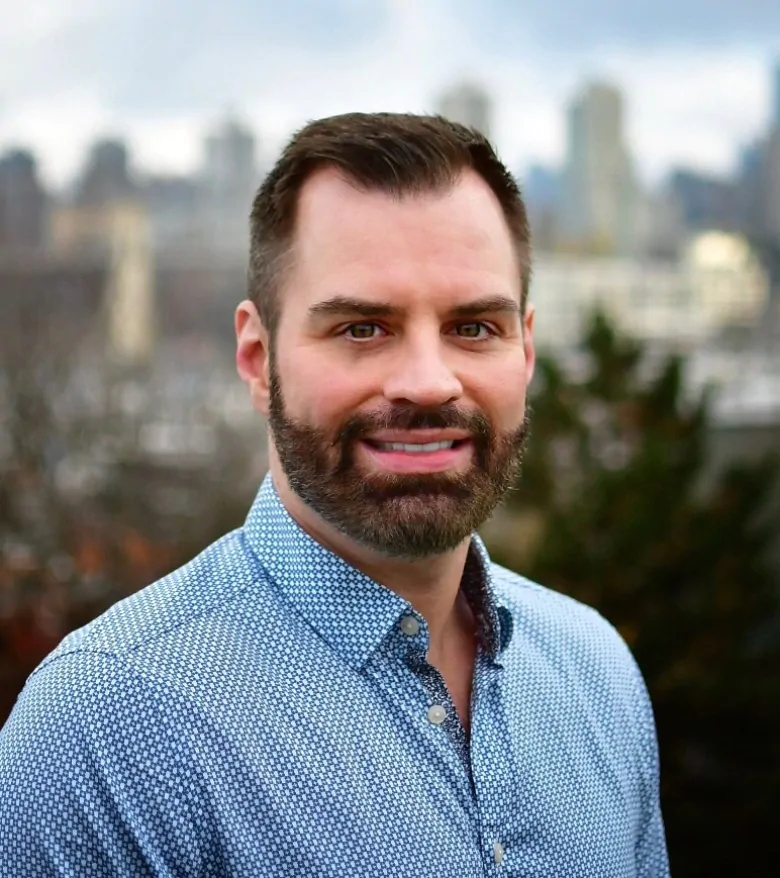COVID-19 restrictions have made it tough for single folks to safely start intimate relationships. Dr. Demetre Daskalakis, an expert with New York City’s Department of Health and Mental Hygiene, joins host Dr. Brian Goldman to share the latest guidelines on dating during the pandemic.

Listen to the full episode21:16
After years of health officials and “sexperts” drilling home the importance of condom use to stop the spread of disease, there’s a new prophylactic in town due to COVID-19, and it’s one you might not expect: a face mask.
“COVID-19 is not a typical sexually transmitted infection. In fact, it literally flips sexually transmitted infection work upside down, because we usually think about STIs as something that you worry about from the waist down, and this is a scenario where we’re worried from the neck up,” Dr. Demetre Daskalakis told Dr. Brian Goldman on the CBC podcast The Dose.
Daskalakis, an infectious disease expert and the deputy commissioner at the New York City Department of Health and Mental Hygiene, is one of the experts behind new recommendations on safe intimate relations during the pandemic. Last week, the department released guidelines on how to have safer sex during COVID-19. It comes at a time when candid and clear information for couples who want to hook up during COVID times is hard to find.
Experts in Canada believe the document hits the right note and encourage its use.
“[It’s] a really great resource that I think should be broadly applied across the world,” said Dr. Troy Grennan, physician lead for the BC Centre for Disease Control’s sexual health programs.
Harm reduction more realistic than abstinence
As public-health departments start to publish recommendations on what safer sex looks like during COVID-19, experts believe the more information that’s available, the better.

“It’s not just in COVID. It’s in so many other diseases like HIV and other sexually transmitted infections, where we know that an abstinence-based model tends to be very unsuccessful in the long term,” Daskalakis said.
“And so, the more realistic part is to give people harm-reduction strategies to make sure that they’re able to keep themselves as safe as possible if they choose to leave their homes and have new sexual partners.”
Grennan said messaging that revolves around abstinence or contact between those who live together doesn’t work for single people, those who may live alone or those who feel lonely.
“I think in some respects, it’s not realistic to assume that everyone can stick to their own bubble with respect to having sexual partners,” he told CBC. “Sex is an important and normal part of everyone’s lives, and people are going to continue doing it.”
In terms of public-health guidelines, Grennan said he wants to see sex-positive messaging.
“I think by using very firm language — for example, saying you absolutely should not be having sexual partners outside of your bubble — there’s a concern that it’s very value-laden, it can be seen as very judgmental,” he said. “Ofte

